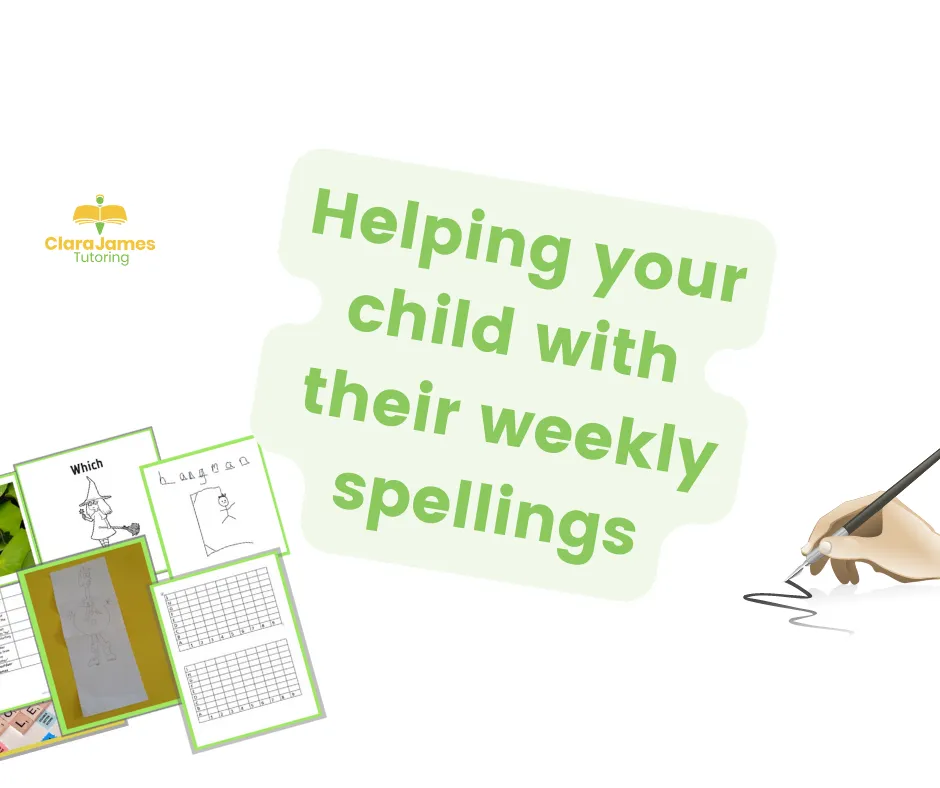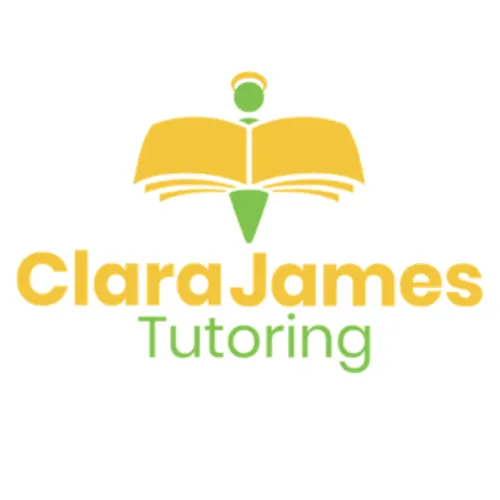Clara James Franchise
BLOG POSTS

How can we make spelling fun? Games that we have used
SPELLING CAN BE LABORIOUS!
FOR SOME PEOPLE AN ABILITY TO SPELL CORRECTLY SEEMS TO BE INSTINCTIVE. FOR OTHERS SPELLING SEEMS TO BE AN UPHILL STRUGGLE.
FOR MANY THE WEEKLY SPELLING LIST IS A SLOG.
Hopefully, some of the suggestions here will make it a more enjoyable experience and remove some of the stress.
Most primary aged children will bring home a spelling list most weeks, and for many families this is; an inconvenience that doesn’t get done, is done quickly in the car on the way to school or when is undertaken at home is an arduous task to say the very least.
Hopefully these five ideas given below will help the task become a more enjoyable experience and take very little time to prepare and at no additional cost to yourself.

SPELLING TIP 1: HANGMAN
Use the child’s words to play hangman. By doing this, the child is having to think carefully about the letters in each word and the order in which they go. Have the list in front of the person in control of the board so that the child is spelling it correctly, but the other person can’t just immediately guess the word from reading the list.

SPELLING TIP 2: MAKE A WORD SEARCH
Make a grid each that is roughly 10 squares by 10 squares depending on the length of words the child is learning. Each of place the spellings in the grid; each word has to be in a straight line though it can up or down, forwards or backwards, left or right. You then exchange grids and seek out the other person’s words. This can be done one way, with just you creating a word search for your child to solve.

SPELLING TIP 3: SNAKES AND LADDERS
Again make a grid, this time roughly 6 by 5. Write one word on various squares around the grid and roughly 4 snakes and 4 ladders in various places around the board. As with the traditional games you move around the board going up the ladders and down the snakes. This time however, each time you land on the word you need to write it down, spelling it correctly.
SPELLING TIP 4: NOUGHTS AND CROSSES
Again this game is like any other game of noughts and crosses, except in each position on the grid is a number. Each number relates to one of the spellings. As you choose your number, the other person will tell you the word that this number relates to. You then have to try and spell the word correctly.
SPELLING TIP 5: BATTLESHIPS
I hope I have saved the best until last. You each have two boards with 1-9 across the bottom and a-I up the side. Place the words in the grid, one letter in each square and again, the words must go in a straight line. Then, taking it in turns, choose a co-ordinates to try and find where the other person has placed their words. The first person to find all the other persons words wins.
There are several reasons why it is beneficial to present your child’s spellings as games:
If it is fun, hopefully your child will be more receptive to taking part
Each time you play a different game, you are creating a different memory. The wider range of memories you have the more likely it is that you will be able to recall the relevant information when it is needed.
We all have different learning styles; visual, audio or kinaesthetic or a combination of 2 or more. Again, the more variety of games we play, the more likely you are to cater towards the learning style of that particular child, again helping them to recall the information when required.
This is the philosophy upon which we have built the company Clara James Tutoring.
If you are interested in more ideas on creating a relaxed environment when working with your child, why not sign up to my blog or get in touch and I will send you a weekly email offering you techniques that you can use to support your child at home?
I hope you have found these ideas useful, let me know what you think. I’d love to hear about your own experiences as well by leaving your comments in the comments box. Thank you in advance.
If you liked this article, please share it with your friends.
I set Clara James Tutoring Ltd up in 2012 and we have gone from strength to strength during that time. My background was predominately working in early years and with specific learning difficulties, in particular dyslexia. Here especially, a varied, interactive approach to learning is highly regarded. My opinion was, why couldn’t you use the benefits of this style of learning with everyone.
If you are relaxed, you are more susceptible to learning and retaining the information, rather than in a tense situation where you are feeling on edge, and often to nervous to remember what you are being told.

